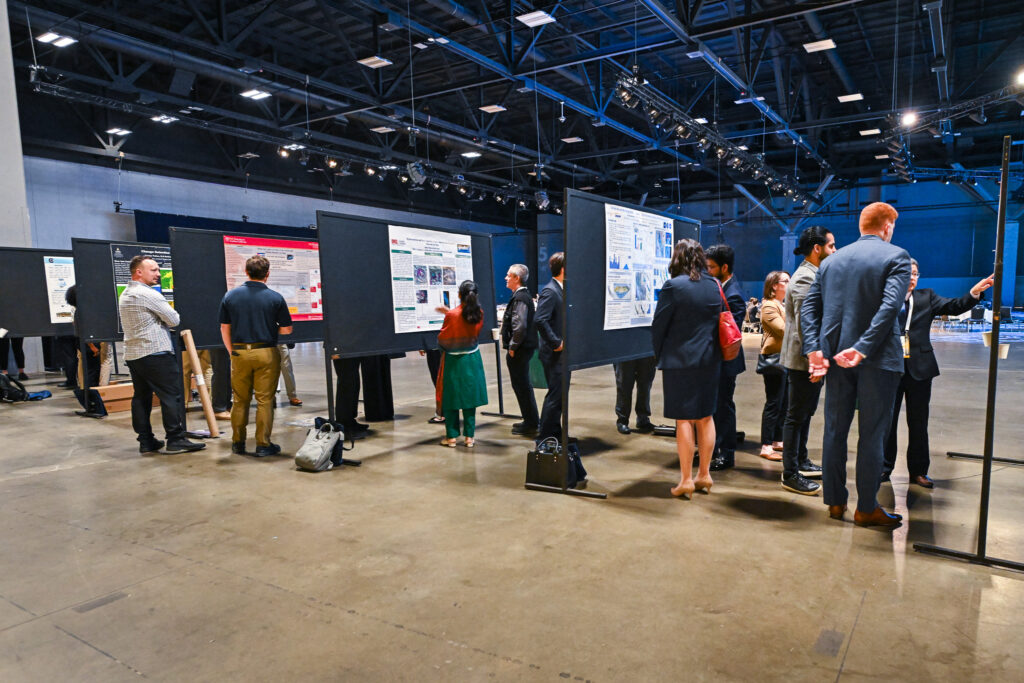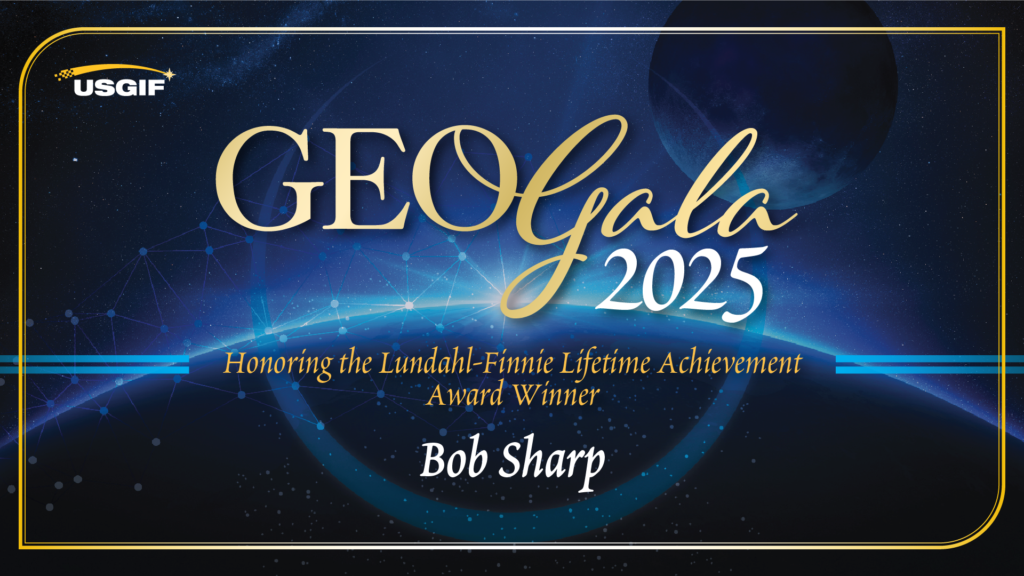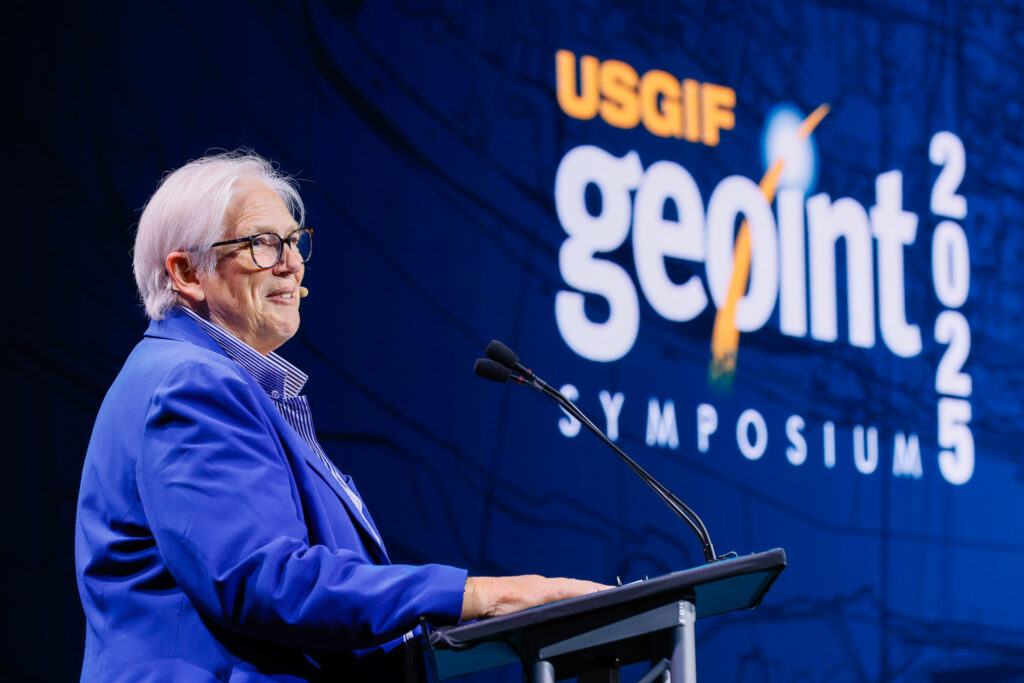Danny Oliva, 2022 USGIF Scholarship Recipient
Danny Oliva talks about receiving a USGIF scholarship and his desire to give back to the next generation of GEOINT students.

Danny Oliva, a Chief Warrant Officer in the U.S. Army and undergraduate at Delta State University (DSU), has 13 years of experience in the GEOINT profession and dozens of certifications and awards to his name. Trajectory sat down with him to talk about his decision to pursue a degree in GEOINT, what winning a USGIF scholarship means for him, and what comes next.
What inspired you, Danny Oliva, to pursue an undergraduate degree after such a successful career in practice?
In our career path as Chief Warrant Officers, it’s almost a requirement to pursue education in order to reach higher grades. Not just getting professional certifications, but diving into academia and understanding the other side of the coin. Because sometimes we in the services are ahead on the edge, but sometimes the academic side is ahead. So, getting a degree is making you whole. When you come into service, you naturally get experience through deployments and training, but you make yourself whole as a practitioner by combining your experience with the academic side.
You mentioned in your scholarship application that you, Danny Oliva, hope to become a teacher at the collegiate level. When did you realize that you’d like to teach?
When I went into my degree path at DSU, becoming a teacher wasn’t something that crossed my mind. I’ve always enjoyed teaching the craft to soldiers, but when I was able to impart some knowledge on other students in my courses at DSU, it was an idea that started revolving around my mind. I realized that I have a lot to give—a lot of experience and knowledge to share with others. Talbot Brooks, the DSU Geospatial Center Director, also inspired me to pursue a career in teaching, as he has been a huge advocate and supporter to my success. So, this degree along with future degrees I get are going to help make me whole in order to combine experience and academic degrees to become a teacher.
What would you, Danny Oliva, say to other current GEOINT practitioners who are considering whether to go back to school?
If it’s something that you’re passionate about, take a chance on yourself and dive into the unknown. Sometimes that’s scary for folks—putting yourself out there in education—because you wonder if you’re able to adapt to the academic side of things. That can be a daunting challenge. But take a chance on yourself and expand your knowledge. You’ll not only bring more value to your organization, but you’ll find an inner peace knowing that you’ve broadened your horizons and knowledge.
How has learning about GEOINT in an academic environment supported your work with the U.S. Army?
For intelligence and imagery analysts, the Army has a very structured way of thinking. It’s almost black and white. But we don’t always get to understand the why. Why are things the way they are geospatially? Not just thinking in black and white but being able to add color to your thought through academic learning helps expand how you approach a problem. For me, I’ve had some experiences in Afghanistan that have taught me to be black and white in my analytical thinking, but when I approach problems now, the courses at DSU have helped me think beyond myself and from different angles. I find myself approaching problems differently than I did beforehand.
What is the value of geospatial education to you?
For me, it’s being able to encompass my experiences as a practitioner and learning the academic side and tying it all together. It makes me well-rounded in terms of experience and exposure to the academic side. It’s not always about setting yourself apart from your peers, but being able to integrate yourself with your peers in another environment. I think that’s the beauty of geospatial education—being able to delve into an environment of like-minded folks. People who have a passion for the Earth, people who have a passion to know what’s going on from above, and how to use different technologies to advance our way of life. Being integrated with those type of folks that have the same passion, that’s what makes it all worth it.
What does receiving a USGIF scholarship mean to you?
For anyone who earns a scholarship, it’s humbling to be recognized for your work. A lot of folks do a lot of great work around the world, but when you get recognized by USGIF, I think that speaks to the investment of the community into the next generation of professionals. When I got selected that’s what really got me—the investment in the future.
Where do you think the GEOINT community is heading? What’s next for geospatial technology?
I think that data science and ML/AI is the future of the field. I think GEOINT is going to, like any other field, face information overload. And there will be a future dependency to be not necessarily a full-on data scientist, but to have an understanding of how to gather, clean, and analyze large amounts of data. We will have to remain experts in how to understand remote sensing systems and GIS tools but leverage big data to gain insights. I think that’s going to be the paradigm shift of the future for our field.
Related Articles
USGIF Celebrates 2025 GEOINT Symposium Student Poster Winners
USGIF proudly recognizes the outstanding achievements of the top three winners of the 2025 Student Poster Competition, selected from an exceptional field of uni…
USGIF Honors Vice Admiral Robert Sharp, USN (Ret.), with 2025 Lundahl-Finnie Lifetime Achievement Award
The United States Geospatial Intelligence Foundation (USGIF) is proud to announce Vice Admiral Robert “Bob” Sharp, USN (Ret.), as the recipient of the 2025 Arth…
GEOINT Symposium 2025 Day Three Recap
GEOINT’s Next Frontier: Space Collaboration and Strategic Alignment The final general session day of the 2025 GEOINT Symposium highlighted the challenges and o…




